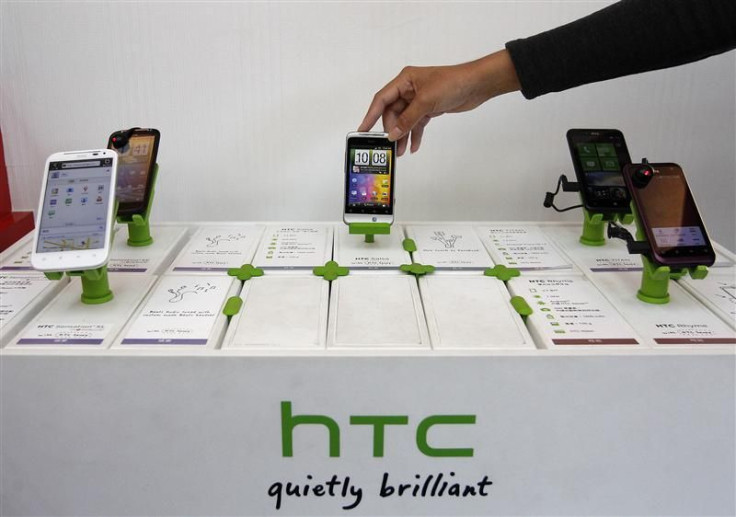Apple Wins Partial Victory over HTC in U.S. Patent Fight

(Reuters) Apple Inc scored a narrow victory against Taiwan's HTC Corp in their smartphone patent battle Monday when the U.S. International Trade Commission ruled that HTC infringed on only one of four patents at the center of the case brought by Apple.
The U.S. trade agency imposed a formal import ban on any HTC phones that infringe on the patent, starting April 19, 2012.
Experts say, however, that the ITC's decision would not hurt the Asian phone giant because the ruling covered just one patent that HTC has time to work around. HTC gets almost half its revenue from the U.S. market.
It's a limited victory for a variety of reasons, said Peter Toren, an intellectual property litigator and partner with the Shulman Rogers law firm in the United States. He said the ruling does not stop HTC from importing as many phones as it likes until April.
It gives HTC plenty of time to implement a design-around, which I understand they are already working on, he said. The order does in fact take effect in April, but the practical impact won't be felt for some months after that.
Shares in HTC jumped as much 5.4 percent in Taipei trading uesday, also helped by a company announcement that it would buy back 10 million of its shares from now until Feb. 19.
HTC said on Monday the ruling was a win for it and added that it planned to completely remove technology linked to the patent from its phones. The company called the technology a small user-interface experience.
The patent in question, '647, relates to technology that helps users clicking on phone numbers and other types of data in a document, such as an email, to either dial directly or click on the data to bring up more information.
HTC said it was gratified that the judge reversed some of the earlier decisions of an administrative law judge, who ruled in July that HTC infringed two Apple patents in making its Android smartphones.
We are very pleased with the determination and we respect it. However, the '647 patent is a small UI experience and HTC will completely remove it from all of our phones soon, Grace Lei, HTC's general counsel said in a statement.
Apple spokeswoman Carolyn Wu said of the ruling: We think competition is healthy, but competitors should create their own original technology, not steal ours.
STILL TOUGH FOR HTC?
HTC has struggled recently after slashing its fourth-quarter revenue guidance due to stiff competition. Despite the limited loss in the case, concerns linger over whether it can convince investors it sill has the innovative streak that catapulted it from an obscure contract maker to a top brand.
I have a negative and bearish view (on HTC), said Yuanta Securities analyst, Bonnie Chang. I expect its first quarter will still not be good because U.S. phone operators will worry about the injunction and will not pull in inventory until HTC's new models are approved.
She said the new phones have to prove competitive enough to regain market share because rivals Samsung Electronics Co. Ltd. and Motorola Mobility are selling very well in the fourth quarter.
Smartphone technology has spawned a wealth of patent litigation and this suit has been seen by some as a proxy for the larger fight for market share between Google Inc's Android cellphones and tablets, many of which HTC manufactures, and Apple's product line.
HTC is also fighting a patent case in Germany, while Apple has filed complaints against Samsung, which also uses Android software. Apple recently settled a case against Nokia.
Microsoft Corp and Motorola Mobility also have filed smartphone related lawsuits against each other.
Apple initially accused HTC of infringing 10 patents, but six were dropped from the case. The ITC judge then issued a preliminary ruling that HTC infringed two of the remaining four before issuing the final ruling on one patent.
(Poornima Gupta reported from San Francisico; Additional reporting by Argin Chang in Taipei and Lee Chyen Yee in Hong Kong; Editing by Andre Grenon, Jonathan Standing and Matt Driskill)
© Copyright Thomson Reuters 2024. All rights reserved.











